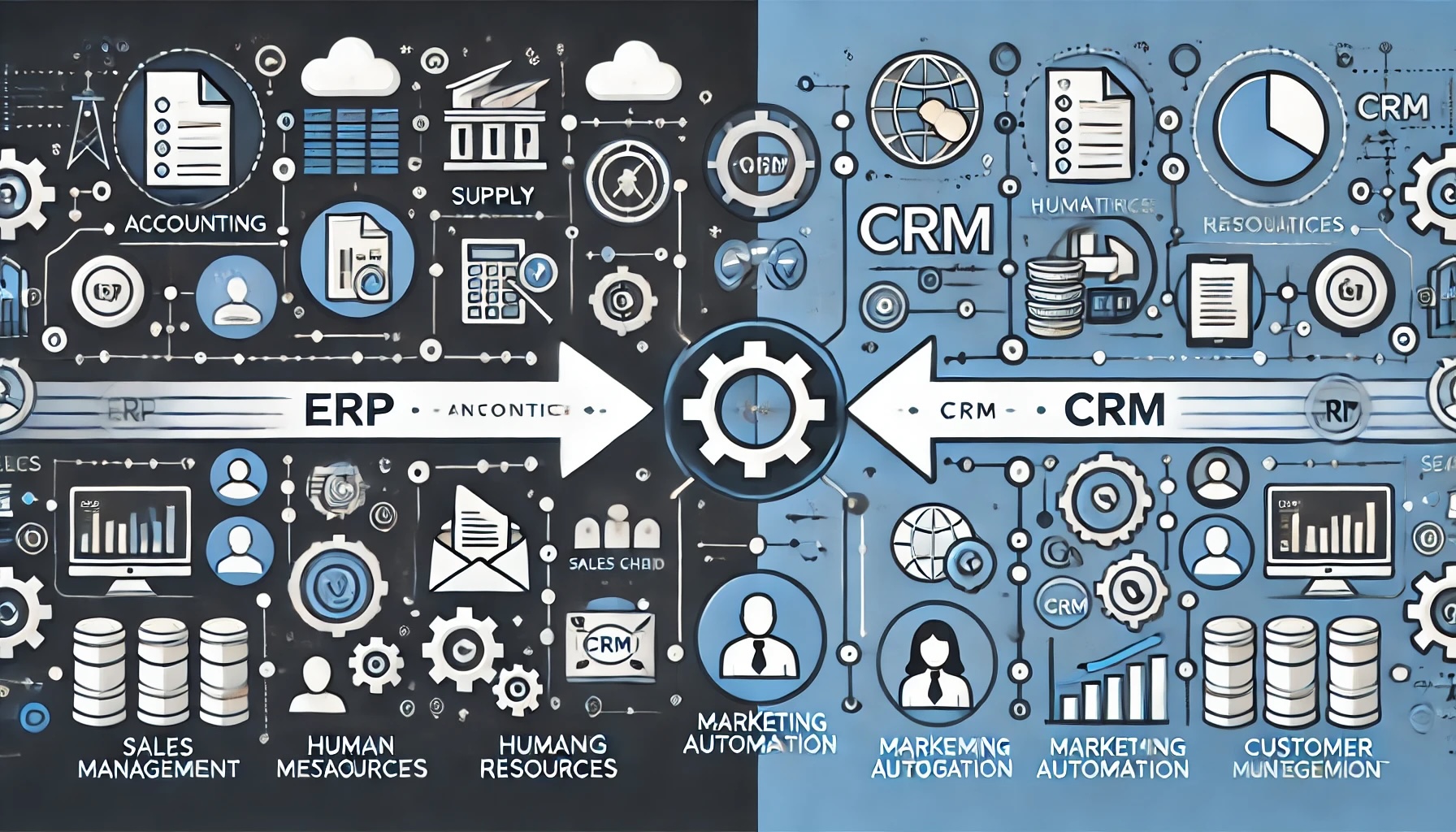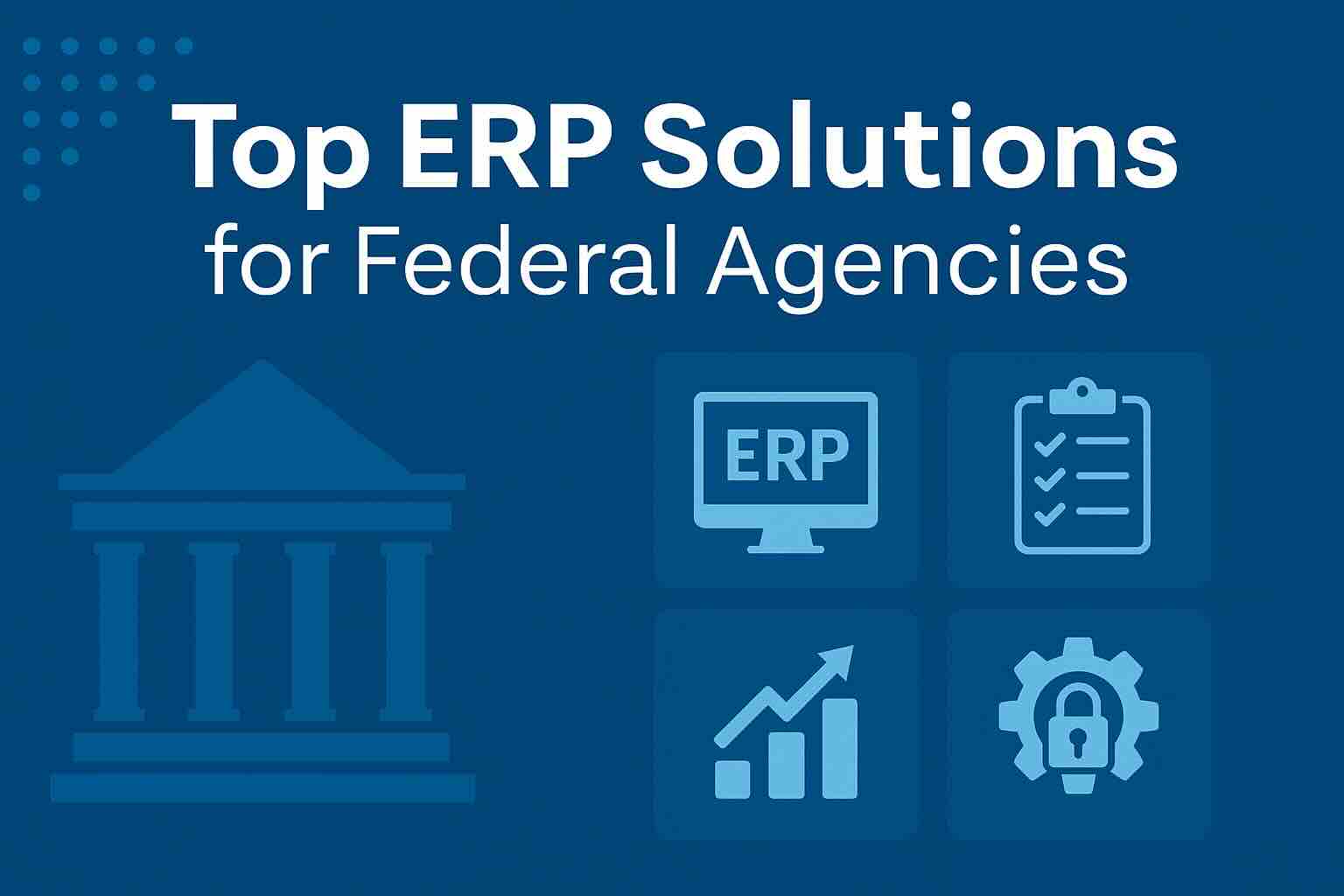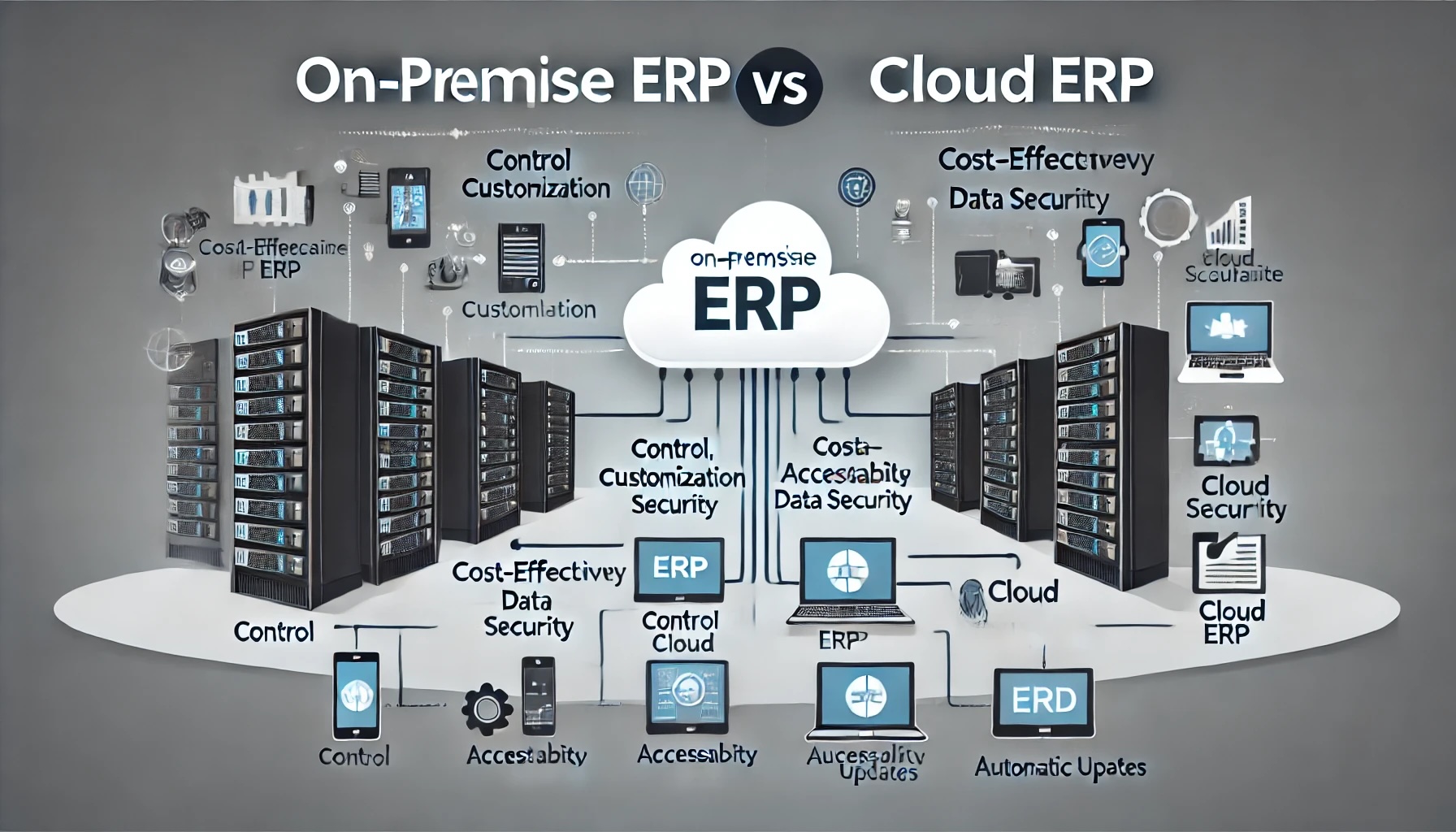ERP vs CRM: Understanding the Differences and Benefits of Integrated Solutions

When it comes to optimizing business operations and enhancing customer relationships, two key software solutions often come into play: ERP (Enterprise Resource Planning) and CRM (Customer Relationship Management). These systems, while sometimes overlapping, serve distinct purposes within an organization. Understanding the differences, benefits, and the value of ERP and CRM integration can help businesses choose the right tools to drive growth and efficiency.
What is ERP?
Enterprise Resource Planning (ERP) is an integrated software platform used to manage and automate core business processes. These processes can include:
- Accounting and Financial Management: Handling accounts payable and receivable, budgeting, and reporting.
- Human Resources (HR): Managing employee records, payroll, and recruitment.
- Supply Chain Management: Overseeing procurement, inventory, and logistics.
- Production Management: Planning, scheduling, and controlling manufacturing processes.
- Project Management: Tracking project progress, resources, and costs.
Benefits of ERP
- Centralized Data: ERP systems consolidate information from various departments into a single database, providing a unified view of the business.
- Improved Efficiency: Automation of routine tasks reduces manual effort and errors, leading to increased productivity.
- Better Decision-Making: Real-time data and analytics support informed strategic decisions.
- Scalability: ERP systems can grow with the business, accommodating new processes and departments.
What is CRM?
Customer Relationship Management (CRM) focuses on managing interactions with current and potential customers. Key functionalities of CRM include:
- Sales Management: Tracking leads, opportunities, and sales pipelines.
- Marketing Automation: Managing campaigns, email marketing, and customer segmentation.
- Customer Service: Handling support tickets, service requests, and customer feedback.
- Contact Management: Storing customer information and communication history.
Benefits of CRM
- Enhanced Customer Relationships: CRM provides a 360-degree view of customers, enabling personalized interactions and improved satisfaction.
- Sales Growth: By tracking and managing the sales process, CRM helps increase conversion rates and revenue.
- Marketing Efficiency: Targeted campaigns and automated workflows lead to more effective marketing efforts.
- Better Customer Support: CRM systems streamline support processes, ensuring timely and efficient resolution of customer issues.
ERP vs CRM: Key Differences
While ERP and CRM systems both aim to improve business performance, they serve different functions and offer distinct benefits:
- Focus: ERP is primarily concerned with internal processes and resource management, while CRM is focused on external interactions and customer relationships.
- Scope: ERP systems cover a wide range of business functions, whereas CRM is specialized in sales, marketing, and customer service.
- Implementation: ERP implementations are often more complex and require significant customization to align with business processes. CRM implementations tend to be more straightforward and faster to deploy.
- Data Usage: ERP systems emphasize data consistency and accuracy across the organization. CRM systems prioritize capturing detailed customer information and interaction history.
The Power of ERP and CRM Integration
For many businesses, the integration of ERP and CRM systems can provide a comprehensive solution that leverages the strengths of both. Integration benefits include:
- Holistic View: Combining operational and customer data provides a complete picture of business performance and customer behavior.
- Streamlined Processes: Seamless data flow between ERP and CRM systems eliminates data silos and improves process efficiency.
- Enhanced Reporting: Integrated analytics offer deeper insights into both operational and customer metrics.
- Improved Collaboration: Cross-departmental access to relevant information fosters better collaboration and alignment.
5 ERP Solutions with ERP and CRM Integration
1. SAP S/4HANA
Overview: SAP S/4HANA is an intelligent ERP suite designed to run on the SAP HANA in-memory database. It integrates with SAP’s CRM solutions to provide a comprehensive business management platform.
Key Features:
- Real-time data processing and analytics.
- Integration of financials, supply chain, and manufacturing processes.
- Seamless connection with SAP Customer Experience (formerly SAP C/4HANA) for enhanced customer insights.
- Scalable architecture for businesses of all sizes.
Benefits:
- Unified customer and operational data for better decision-making.
- Advanced analytics for predictive insights.
- Enhanced customer experiences through integrated sales, service, and marketing capabilities.
2. Microsoft Dynamics 365
Overview: Microsoft Dynamics 365 combines ERP and CRM capabilities into a single, cloud-based solution. It offers modules for finance, operations, sales, and customer service.
Key Features:
- Unified platform for managing financials, operations, sales, and customer service.
- AI-driven insights and analytics.
- Seamless integration with other Microsoft products like Office 365 and Power BI.
- Customizable modules to fit various business needs.
Benefits:
- Enhanced productivity through familiar Microsoft interfaces.
- Comprehensive view of customer and operational data.
- Scalable and flexible solution for growing businesses.
- Integration with LinkedIn Sales Navigator for improved lead management.
3. Oracle ERP Cloud
Overview: Oracle ERP Cloud is a comprehensive suite of applications designed to streamline and automate business processes. It integrates with Oracle CX Cloud to provide robust CRM capabilities.
Key Features:
- End-to-end business process automation.
- Advanced financial management, procurement, and project management.
- Integration with Oracle Customer Experience Cloud for a 360-degree view of customers.
- AI and machine learning capabilities for predictive analytics.
Benefits:
- Real-time financial insights and operational efficiencies.
- Improved customer interactions through integrated CRM data.
- Scalable cloud-based solution with regular updates and enhancements.
- Enhanced security and compliance features.
4. NetSuite by Oracle
Overview: NetSuite is a cloud-based ERP solution that includes built-in CRM functionality. It offers a unified platform for managing business operations and customer relationships.
Key Features:
- Comprehensive suite covering financials, inventory, e-commerce, and CRM.
- Real-time visibility and analytics.
- Customizable dashboards and reports.
- Automation of lead-to-cash processes.
Benefits:
- Single platform for end-to-end business management.
- Real-time data and insights for informed decision-making.
- Scalable solution for businesses of all sizes.
- Enhanced customer relationship management through integrated CRM.
5. Infor CloudSuite
Overview: Infor CloudSuite offers industry-specific ERP solutions with integrated CRM capabilities. It provides a cloud-based platform for managing core business processes.
Key Features:
- Industry-specific solutions tailored to unique business needs.
- Integration with Infor Customer Experience Suite for CRM functionalities.
- Real-time data and analytics with Infor Birst.
- Advanced supply chain management and financial planning.
Benefits:
- Industry-specific functionality for greater relevance and effectiveness.
- Unified view of customer and operational data.
- Scalable cloud-based solution with flexible deployment options.
- Enhanced decision-making with real-time analytics.
Conclusion
Choosing between ERP vs CRM depends on the specific needs and goals of your business. If your primary focus is on optimizing internal processes and resource management, an ERP system may be the right choice. If enhancing customer relationships and driving sales growth is your priority, a CRM system can be more beneficial. However, for many businesses, integrating both ERP and CRM provides a powerful, all-encompassing solution that maximizes efficiency and customer satisfaction.
By understanding the distinct functionalities and advantages of ERP and CRM, and exploring integrated solutions, businesses can make informed decisions to support their strategic objectives and achieve long-term success.
To compare these ERP solutions and many more, you can use our new AI-powered Compare ERP tool. It’s free to use and you get a guaranteed discount on your first year’s licence fees with a referral from Compare ERP.









